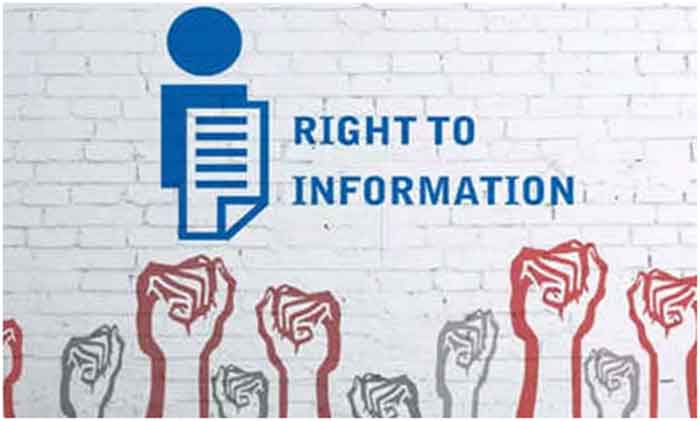
To
Smt. Droupadi Murmu
Hon’ble President of India
Respected Rashtrapati Ji,
The Parliament enacted the Right to Information Act (RTIA) under Article 19 of the Constitution. The Act requires public authorities to make a suo moto disclosure of information of public interest. It empowers the citizens to seek and obtain information on the functioning of such public authorities. The Act thus ensures transparency in the functioning of the Union and the State governments and in the functioning of all other public authorities.
The Act has provisions that ensure transparency in the selection and appointment of Information Commissioners at the Centre and in the States. The Act, as enacted in 2005, prescribed fixed term and service conditions for the Information Commissioners. In 2019, at the instance of the present government, the Act was amended, which considerably eroded the independence of the Information Commissioners.
The manner in which the Act is implemented in recent times causes serious concern. Apart from the dilution of some provisions of the Act through amendments introduced in 2019, there have been inordinate delays in the government appointing Information Commissioners to fill vacancies arising from time to time, giving one the feeling that it is a deliberate attempt on the part of the executive to disable the Central and the State Information Commissions to the detriment of the public interest. Such moves imply the executive’s reluctance to function in a transparent manner and remain accountable to the people.
In this connection, I invite your attention in particular to Section 12(3) of the RTIA which deals with the selection and appointment of the Central Information Commissioners, which reads as follows:
“The Chief Information Commissioner and Information Commissioners shall be appointed by the President on the recommendation of a committee consisting of
(i) the Prime Minister, who shall be the Chairperson of the committee;
(ii) the Leader of Opposition in the Lok Sabha; and
(iii) a Union Cabinet Minister to be nominated by the Prime Minister.
Explanation.—For the purposes of removal of doubts, it is hereby declared that where
the Leader of Opposition in the House of the People has not been recognised as such,
the Leader of the single largest group in opposition of the Government in the House of
the People shall be deemed to be the Leader of Opposition”
I have just come across a disturbing news report (https://indianexpress.com/article/political-pulse/was-kept-in-dark-on-appointment-of-new-cic-heeralal-samariya-adhir-writes-to-president-9016432/) which says that the appointment of the Chief Information Commissioner, who took oath recently, was made without the knowledge of the Leader of Opposition. If what has been reported thus is factually correct, it implies an outright infringement of the requirement of Section 12(3) of the RTIA, in which case, it appears that the concerned authorities had also not placed all the facts before the office of the President. In my view, this calls for an independent examination at the earliest.
If the procedure prescribed in Section 12(3) of the RTIA had not been complied with, it raises serious concerns about the earnestness of the political executive to respect the provisions of the RTIA and respect transparency in governance. It also raises questions about the legality of the Commission itself.
In addition to the executive’s indifference to the effective implementation of the RTAI, public entities such as the PM CARES Fund have shown reluctance to be subject to the RTIA regime of transparency, though they are administered by senior public functionaries and funded significantly by public resources. The introduction of the Electoral Bonds scheme that enables political parties to receive funds from anonymous donors, whose identity and antecedents are kept in the dark, prima facie violates the citizen’s right to information, encouraging electoral corruption.
There have been several such instances in recent times that amount to making a mockery of the idea of transparency in governance.
For example, the government recently introduced the Chief Election Commissioner and Other Election Commissioners (Appointment, Conditions of Service and Term of Office) Bill, 2023 in the Parliament, diluting the norms of transparency recommended by the apex court for selecting candidates to be appointed as Election Commissioners. But for a public outcry, the Bill would have been enacted with little discussion in the Parliament.
There have been numerous instances of the political executive selecting candidates to head the investigation agencies at the Centre and granting indefinite extensions in their tenure, which in turn has eroded the credibility of those agencies and their ability to function in an apolitical manner.
Non-transparency in governance abridges the citizen’s rights under the Constitution, erodes public accountability and creates scope for acts of malfeasance and corruption.
I would appeal to the office of the President to get the latest instance of the Leader of the Opposition not being involved in the selection of the Chief Information Commissioner as required in Section 12(3) of the RTIA examined urgently and ensure that remedial action is initiated, as it has implications for the legality of the functioning of the Central Information commission itself.
Perhaps, your office may seek the advice of the apex court in view of the wider implications of a lapse such as this one.
Respectfully,
E A S Sarma
Former Secretary to the Government of India
Visakhapatnam













































